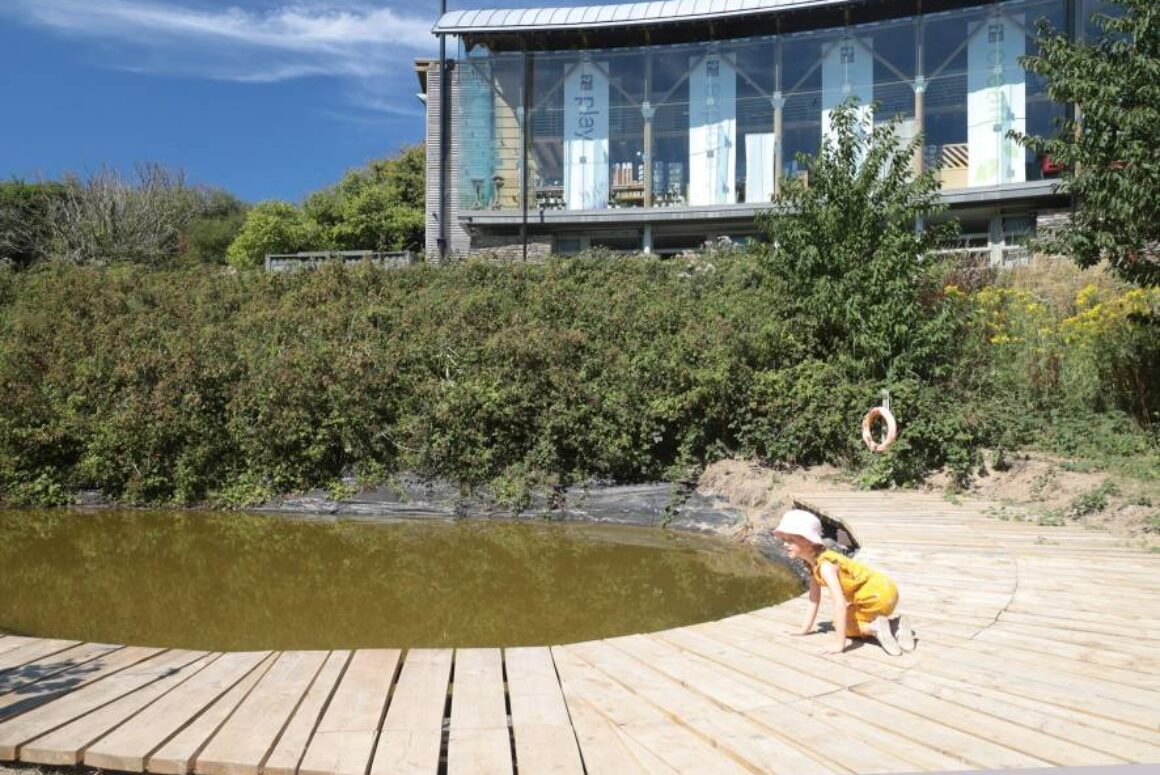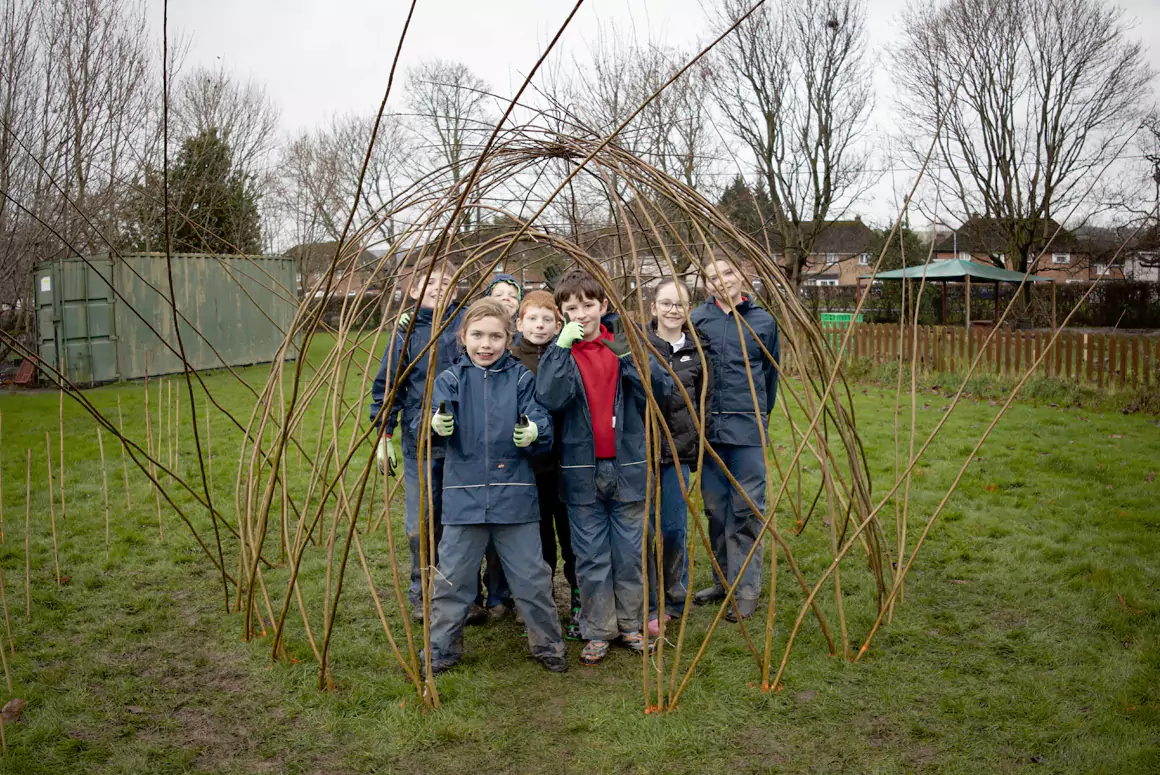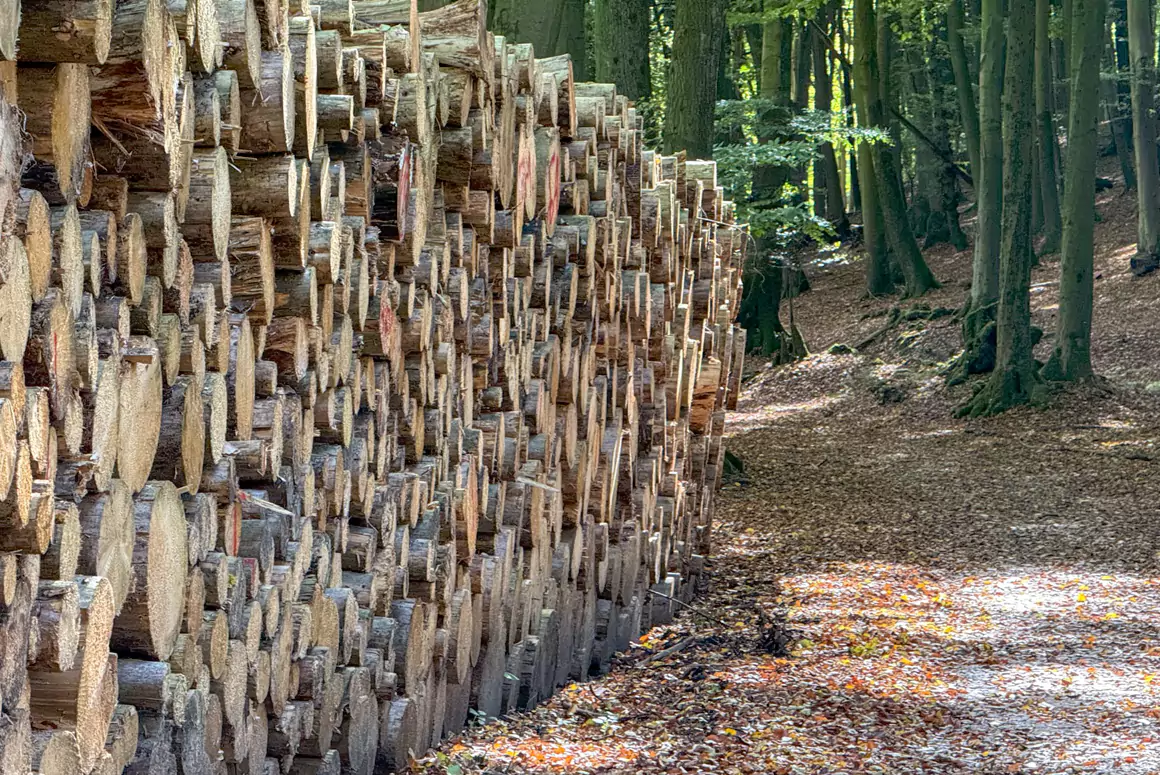Pond dipping returns thanks to teamwork from charitable trusts providing a double boost for Teifi Marshes pond renovation.
A new pond dipping platform at the Welsh Wildlife Centre at Cilgerran thanks to thePembrokeshire Coast National Park Trust and the Friends of Pembrokeshire Coast National Park who have joined forces for the first time ever to fund a project.
The two charitable bodies came together to provide financial support when it emerged that pond dipping activities, which have been a regular summertime feature at the Teifi Marshes Nature Reserve, had been suspended after the 19-year-old platform finally succumbed to the elements.
Following the removal of the original structure, the pond was desilted and given a new liner, before installing a replacement. The new dipping platform is roughly 10m in length and 1.2m wide and comprises a recycled plastic sub frame with timber non-slip decking on top.
Nathan Walton, Wildlife Trust Officer for Pembrokeshire and Reserves Manager for South West Wales, said:
“The Wildlife Trust is very grateful for the financial support the Pembrokeshire Coast National Park Trust and Friends of the National Park have given for the installation of a pond dipping platform at Teifi Marshes Nature Reserve.
“The reserve is home to the Welsh Wildlife Centre which runs numerous wildlife events throughout the year, of which pond dipping is one of them. The new platform now allows for a safer dipping experience for visitors and schools and allows opportunity for engaging and educating attendees on aquatic wildlife.”
The Teifi Marshes is one of the best wetland sites in Wales and supports a range of habitats, including open pasture and well wooded hedgerows, Alder and Willow carr*, freshwater marsh with open pools, reed beds and tidal mud banks. The Visitor Centre, including Glasshouse Cafe and Gift Shop, is open five days a week (Weds-Sun) from 10am-4pm as is the pond dipping. To find out more, go to www.welshwildlife.org/visit/welsh-wildlife-centre-teifi-marshes.
More information on Friends of Pembrokeshire Coast National Park and the Pembrokeshire Coast National Park Trust can be found respectively at www.fpcnp.org.uk and https://pembrokeshirecoasttrust.wales/.
*Alder & Willow Carr is wet woodland
Wet woodland is characterised by trees such as willows, birches and alder that thrive in poorly drained or seasonally flooded soils, such as in fens and bogs, pond and lakesides, river banks, and flushed hillsides. Wet woodland can, however, be quite varied in structure.
Wet woodland known as “carr” is often low-canopied, with willow and alder growing over a bulky ground layer of plants such as royal fern, yellow flag and meadowsweet. Along backwaters and in the loops of meandering rivers on floodplains, alders tend to grow taller and the rich silty soils support nettles and great willowherb.
Why is it like this?
This type of woodland has a long history in the UK, having developed wherever conditions were suitable once the glaciers retreated some 12,000 years ago. However much of the carr present today is relatively recent in origin. The developing woodland gradually dries out the soil and the wet nature of the woodland eventually changes as other species such as oak and ash colonise. But in particularly wet areas, bog-mosses can impede tree growth, resulting in an ongoing cyclical relationship between bog and carr woodland.
There are also bog woodlands where the lack of nutrients stunt the Scots pine or birch so much that it does not interfere with the development of the bog. The succession from one woodland type to another can also be interrupted by floods or coppicing. Floodplain woodlands would once have been dynamic, changing dramatically after big flood events or shifting more gradually as rivers slowly meandered across floodplains. Found on flat, fertile land, floodplain woodlands have been an obvious target for clearance and agricultural intensification, and little remains today.
For more about the PCNP within the Welsh Country website go to www.welshcountry.co.uk/pembrokeshire-coast-national-park/





